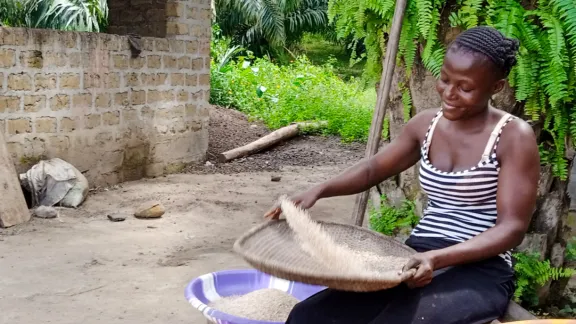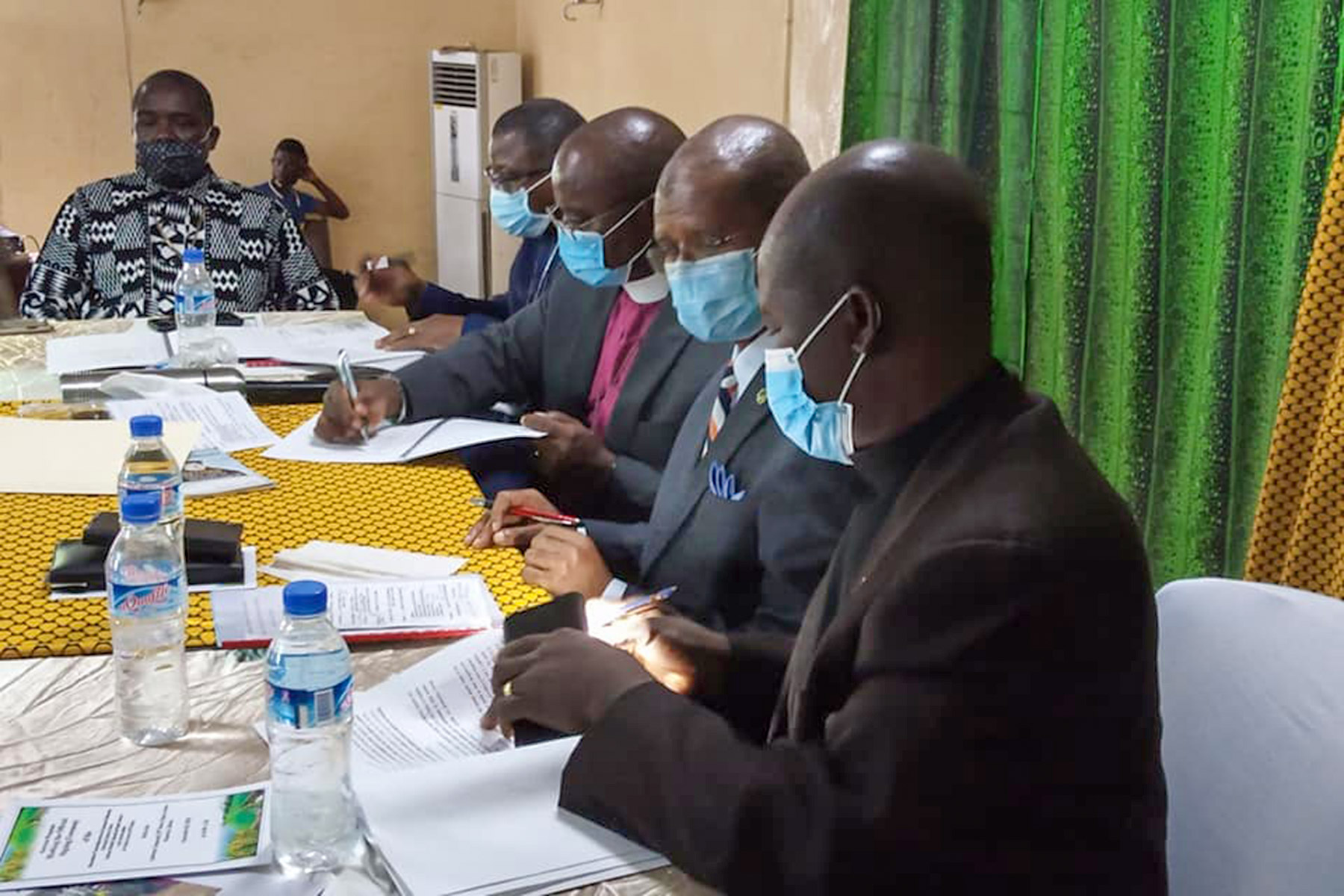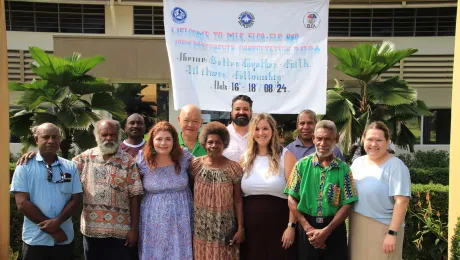
The Lutheran Church in Liberia initiates an ecumenical joint project to alleviate hunger through national rice farming. All photos: Rev. Linda Seyenkulo/LCL/ELCA
Lutheran Church in Liberia, ecumenical partners implement rice farming initiative
(LWI) - The Liberian Initiative for Feeding Everyone (LIFE-Liberia), a collaborative project envisioned by the Lutheran Church in Liberia (LCL) Bishop Dr Jensen Seyenkulo, aims to create food and economic security for food-insecure farmers by increasing national rice production.
A memorandum of understanding was signed by the LCL, the United Methodist Church, the Episcopal Church and Baptist Church leaders in Liberia on 22 September.
As the Coronavirus (COVID-19) pandemic swept around the world, church leaders, humanitarian workers, and theologians began to see existing social and economic challenges become exacerbated by the pandemic.
The West African country closed its borders to control the spread of the virus thereby experiencing a low-rate of infection and deaths during the height of the pandemic.
The goal of the initiative is to “increase the availability of rice even during difficult times, said the four church leaders, stating that the shortage of affordable rice also happened during the Ebola outbreak in Liberia from 2013 to 2016.
More than 70 percent of Liberia’s rice supply is imported from other countries, according to a Global Alliance for Improved Nutrition report, but when the borders closed during the pandemic, importation of the grain slowed and the high demand caused a rise in prices of the Liberian staple food, leaving many hungry.
A good climate to grow
Taking into consideration Liberia’s natural resources and ecosystems, the church leaders say that the country can sustain a healthy, native rice industry. The average rainfall in Liberia is 5,000mm a year, enough to forego irrigation, and an average of 1,662 hours of sunlight a year are perfect conditions for rice cultivation, the group emphasizes.
Offering a voucher system and shared-costs purchase plans, LIFE-Liberia will equip small-rural farmers with semi-mechanical tools, fertilizer, quality climate-smart seeds, and other agricultural inputs.

Rice fields in Liberia.
Churches called to feed the hungry
Bishop Seyenkulo, inspired by Jesus’ mandate to his disciples “They need not go away, you give them something to eat,” (Matthew 14:16) called on local ecumenical partners in ministry, the national government, the University of Liberia, and an intergovernmental agency to develop what is now the LIFE-Liberia initiative.
The church’s mandate is to help the government feed the nation
“The church’s mandate is to help the government feed the nation,” Seyenkulo said.
Hoping to reach the entire faith community, the group will partner with the Inter-Religious Council of Liberia and the Liberia Council of Churches to span a wider range of support and include a diverse population of farmers.
The four-year plan and memorandum of understanding among the churches also outlines procedures that ensure gender equality, fosters agricultural training for youth and best practices of climate care and sustainability.

Four ecumenical partners sign memorandum of understanding.
According to data, women comprise 43 percent of the agricultural labor force worldwide and Liberia reflects those percentages. Typically, women’s role is extensive and related to weeding and rice harvest and processing and preparing food and collecting fuel and water.
“LIFE-Liberia would give farmers access to processors, winnowers and threshers which will reduce the drudgery of labor on farming households,” Seyenkulo said.
To generate all forms of support, such as financial, logistic, and technical expertise, the LIFE-Liberia plans to collaborate with the government of Liberia and relevant development partners. The initiative, which is set to launch on 1 December of this year, is confident grants and donations will come, Seyenkulo said.
“We are encouraged to see the LCL and its ecumenical sisters and brothers joining together to express the Gospel message of service, love and care through diakonia. This demonstrates the concrete action that churches are called to align their initiatives with the United Nations Sustainable Development Goal #1 & #2 which addresses the alleviation of poverty and hunger,” commented Rev. Dr Elieshi Mungure LWF Regional Secretary for Africa.
LWF/A.Gray


